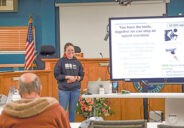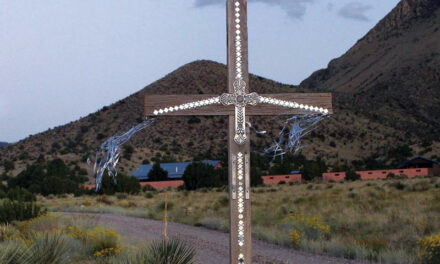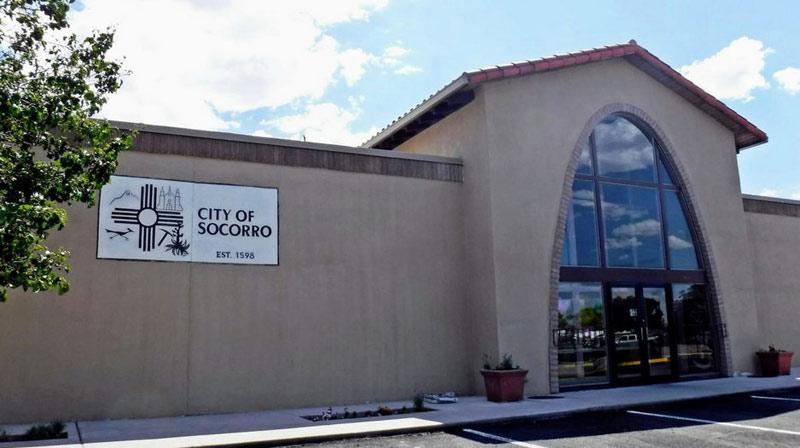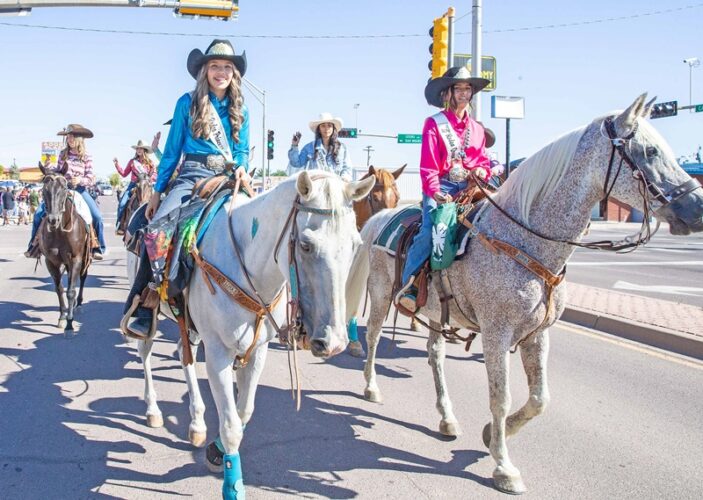
Socorro County rodeo royalty make their way down California Street during the fair’s parade.
Russell Huffman | El Defensor Chieftain
For local kids involved in 4-H, Future Farmers of America (FFA), and The Ranches, the Socorro County Fair is their weekend to shine and share the fruits of all their labors with the community.
The stands overflowed with an excited crowd on Saturday afternoon with enthusiastic bidders supporting the kids’ efforts.
According to Josefina Perez, club leader of Tumbleweeds 4-H, this weekend’s 4-H and FFA showmanship didn’t go unnoticed by the Texas judge.
“One thing he said was that Socorro County kids are some of the most respectful, kind, and outspoken kids he’s met. By outspoken he explained that when he asked them questions, they responded without hesitation,” said Perez. “He said that for him it was a clear sign of what parents and teachers are teaching them and what they are learning in 4-H and FFA.”
Perez believes that growing up “under the barn”, as they say in 4-H, is an experience that offers valuable social skills, time management skills, gratitude, and volunteerism.
“It’s a huge commitment for a kid to get up at six a.m. every day to take care of their animal; I’m talking seven days a week,” said Perez.
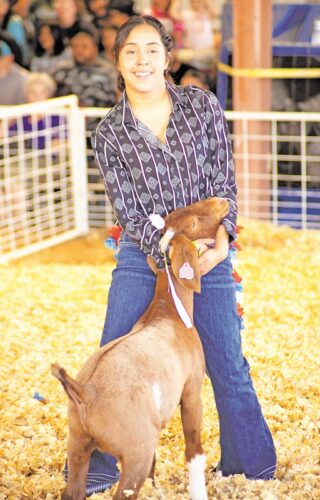
Socorro County participant display her goat at the auction.
Jessica Carranza Pino| El Defensor Chieftain
On top of raising animals, community service and working on projects, 4-H kids are responsible for leading their own monthly meetings using parliamentary procedure with Robert’s Rules of Order. They have opportunities to network with other members around the state and country at conferences.
“I don’t want kids to think they can’t join because they don’t have a farm,” said Perez.
“It doesn’t matter if you weren’t raised around this lifestyle, anyone can do 4-H.”
Raising animals is not a requirement to participate in 4-H, members can choose from a variety of projects from macrame to entomology.
“If members don’t have the resources to raise animals and they wanted to, there are many situations where a neighbor or another family offers up space on their property for kids to raise animals,” Perez added. “Everyone is always willing and happy to help.”
Kensi Yoakum, Administrator of Programs at The Ranches, said that kids living there stick to a regular routine and spend four hours a day walking, feeding and caring for their animals. The Ranches is a non-profit organization with the mission of offering at- risk teens with challenging pasts a chance to restore their hope. Yoakum explained that the average stay for a kid is about 18-months.
She revived the 4-H the program at The Ranches three years ago because of the positive experiences she had as a young person in 4-H.
“4-H taught me hard work and dedication and I thought that bringing back 4H might allow us to connect with the kids through animals,” said Yoakum.
Many of the kids have never been to a county fair or had any experience working with animals. She believes that participating in 4-H gives them skills they can translate into their lives.
“A lot of times these kids feel judged by their past, their parents’ past or even the environment they came from, so to be able to look the part, dress the part and show their animals it gives them a whole new outlook and perspective on life.” said Yoakum.
Over the weekend she said that one of the kids put in his bio that the main thing that he’s learned about 4-H is that he never knew what it was like to be cared for.
“Now he knows how to feel cared for and how to take care of something too,” said Yoakum.



